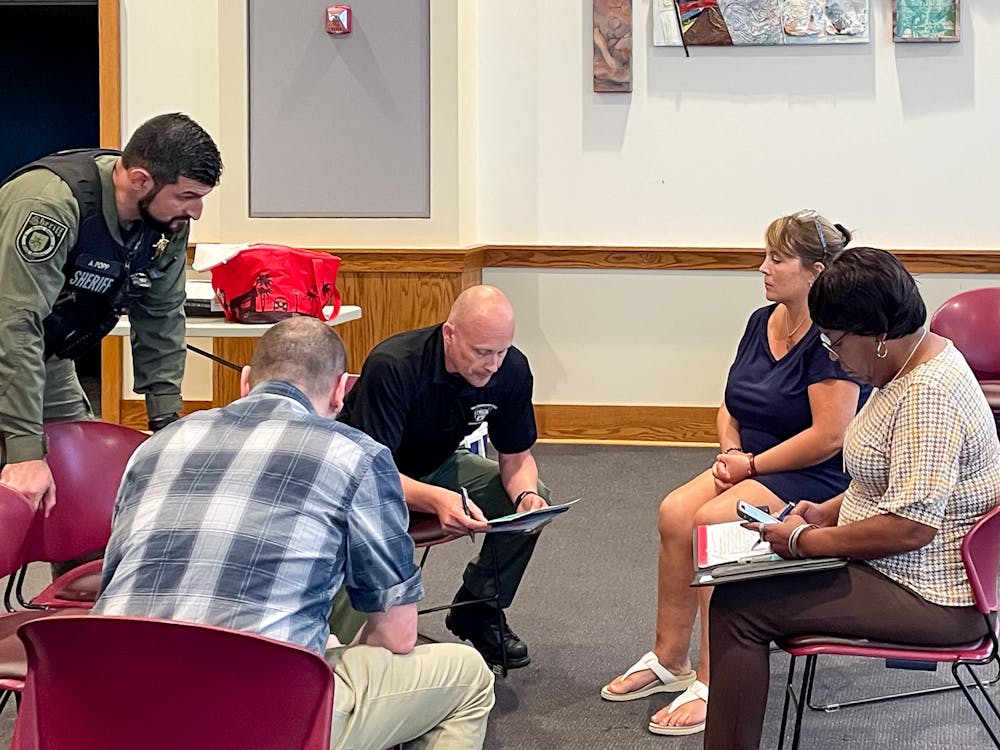The Compass Center has a number of resources available to help victims and survivors of domestic abuse prioritize their safety— including court advocacy resources, legal aid resources, support group resources and shelters for victims.
Charlier said the Compass Center also does follow up calls with domestic abuse victims within 24-72 hours of an incident. During these calls, the center will assess the ongoing safety needs of the person and work to address those needs.
Caitlin Fenhagen, the director of the Orange County Criminal Justice Resource Department, said Attorney General Josh Stein became interested in LAP several years ago. She said that since then, her department has been planning for positions needed to staff North Carolina’s LAP, conducting training sessions with local law enforcement groups and waiting for the most updated version of the LAP curriculum.
She also said that the Maryland researchers who created the protocol closely incorporated data analysis about domestic violence homicides in the LAP.
“The Maryland researchers looked at a lot of data of which domestic violence incidents ended up with later homicides, and so there's certain factors that create enhanced risk,” Fenhagen said.
Fenhagen said that after initial domestic violence calls, perpetrators are often released from custody and able to return home. She said the LAP protocol will help victims after the perpetrator's return because of the conversation between domestic violence providers and victims.
Kathleen Lockwood, the policy director for the North Carolina Coalition Against Domestic Violence, said this protocol is important because there are many factors involved in protecting communities from domestic violence.
“The LAP allows law enforcement to be more informed and aware of the lethality risks of individuals in their community,” Lockwood said. “And it allows community members to increase the likelihood that they'll get connected to the life saving services that they may need.”
Lockwood also said that the NCCADV provides training for the LAP and builds connections across the state to increase participation in the program alongside the N.C. Department of Justice.
She said that the LAP is important because studies show that when a domestic violence victim is connected to support services, it lowers their risk of death by domestic violence homicide.
Karina Santibanez, the LAP coordinator for the Chapel Hill Police Department, said in an email that the LAP protocol allows officers an opportunity to enhance their training for responding to calls about domestic violence.
Fenhagen said that after the primary training on Sept. 6, law enforcement agencies will now have certified trainers to train their entire offices.
To get the day's news and headlines in your inbox each morning, sign up for our email newsletters.
According to Fenhagen, the Criminal Justice Resource Department’s next steps include additional training for responders, working through the implementation logistics for the LAP, and ensuring the protocol is relevant to Orange County. She said she expects this will happen within the next 60 days.
@ellaaluise
@DTHCityState | city@dailytarheel.com



